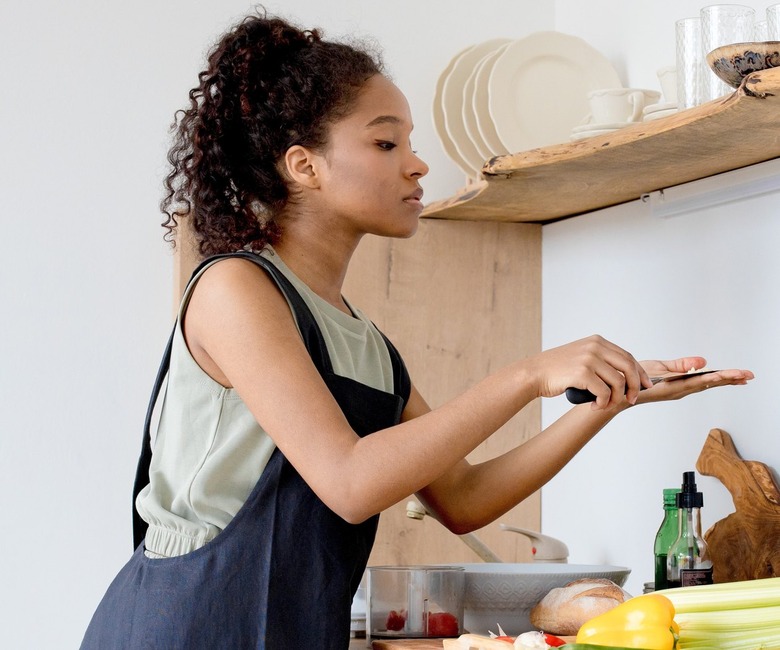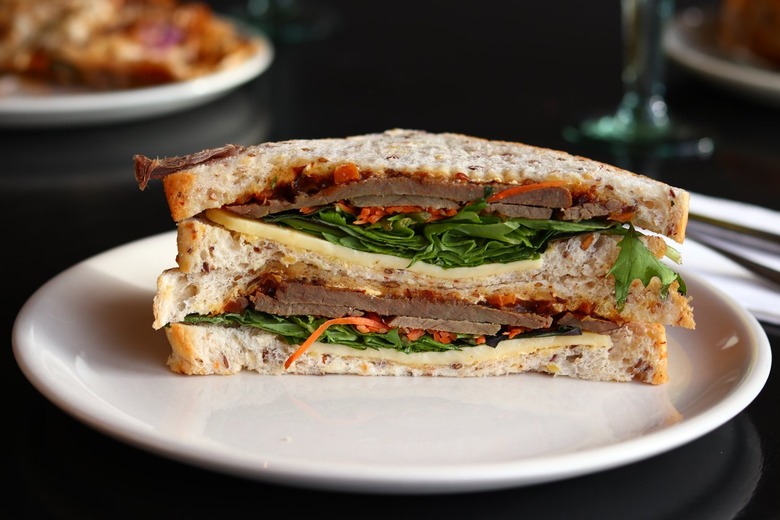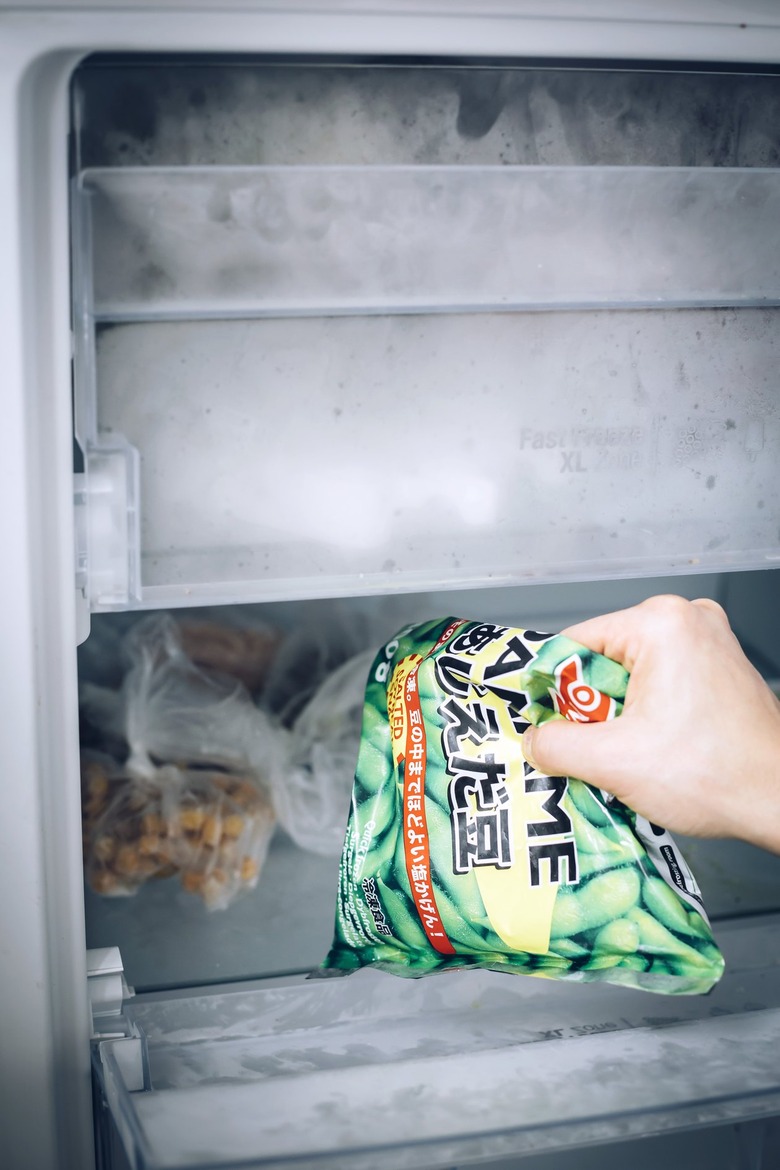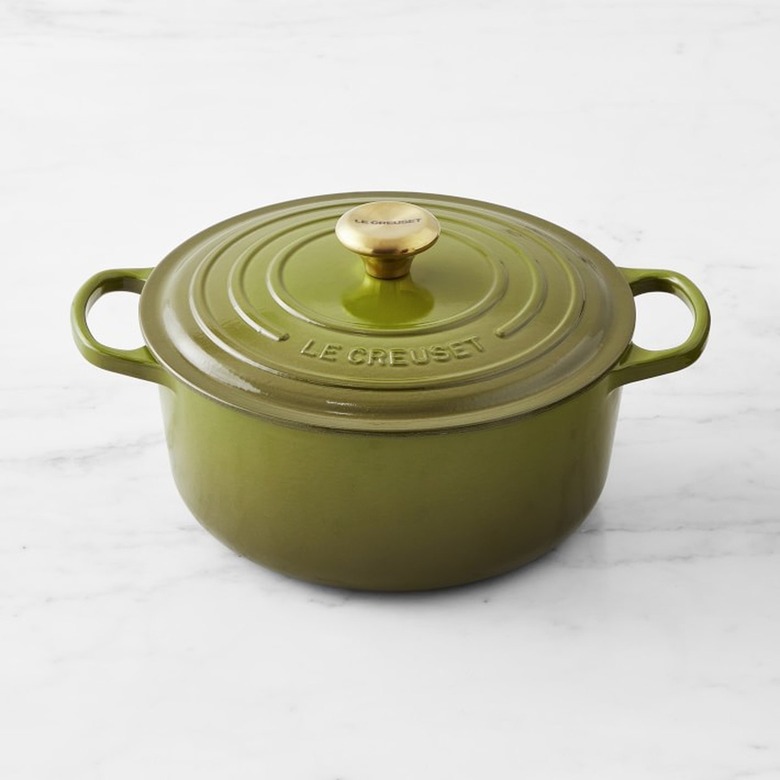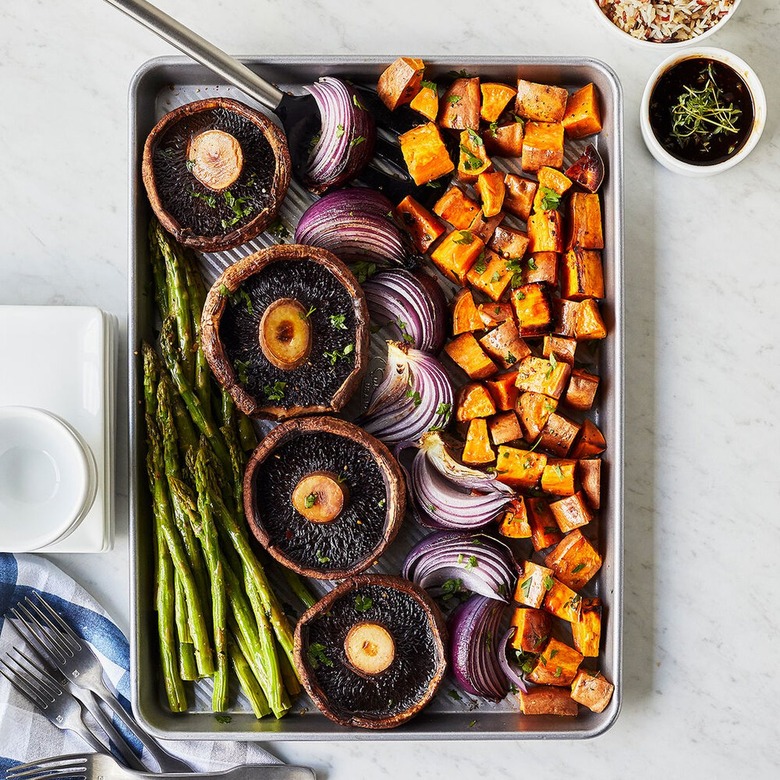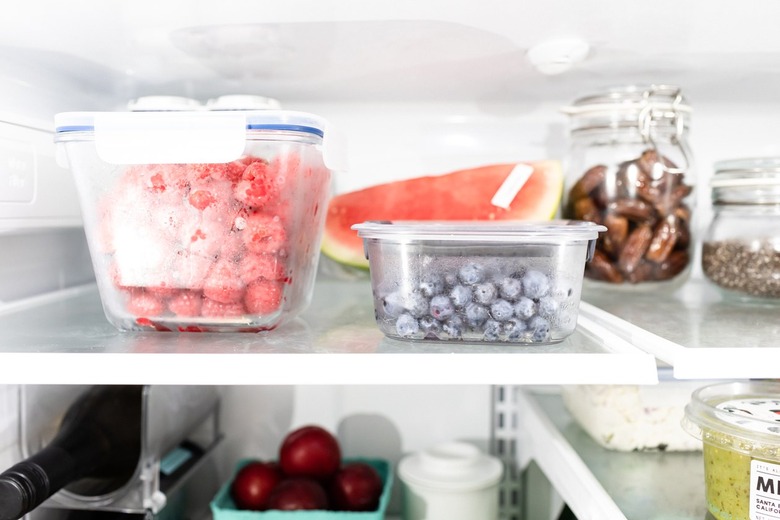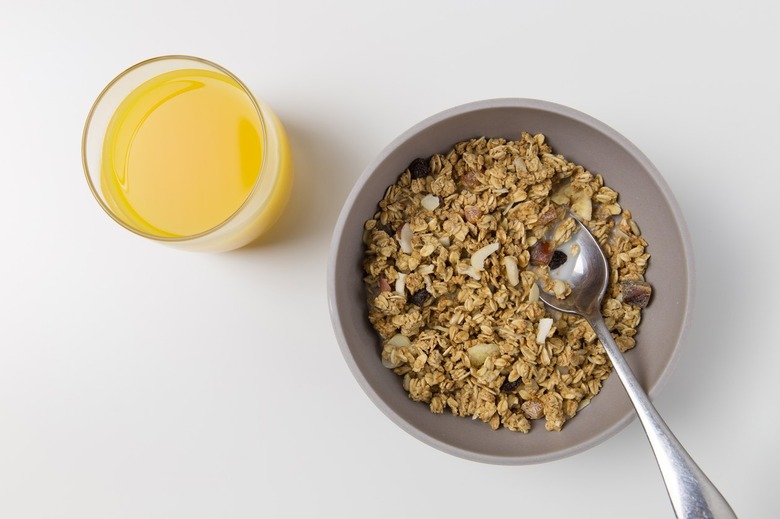6 Food Hacks I Use As Someone With A Chronic Illness
Humans must have water, air, shelter, sleep, clothing, and food to survive, according to Maslow's hierarchy of needs. While these are the most basic needs for all humans, some can have a hard time obtaining them. Or, they can obtain some, but not all, for a variety of reasons. One of many reasons is illness.
As I write this, I'm thinking about how, two days ago, I gave up on cooking chicken as soon as I started. Sometimes it's like that when you have a chronic illness that takes everything out of you. Now, you may be thinking, "If it's a chronic illness, aren't you used to it? Can't you power through?"
To answer your question in the shortest way possible: No. When you have a chronic illness, your body is fighting you with the force of all 23 of Serena Williams' Grand Slam titles; operating your physique as "normal" is not a possibility.
Think about a full tank of gas, but let's apply this to your body as energy. You go through an entire day completing all your tasks — showering, cleaning, working, cooking — and when the day is done, you fall asleep to fill up your tank. When you're sick, it doesn't work like that. A full tank of gas can be rare. Maybe you have half a tank, a quarter, or a few drops, and once it's gone, you can't do anything else. Refueling is also not an option, so now you're stuck. In the chronic illness community, this is known as the spoon theory. (A tank of gas is more visual for me and easier to explain.)
If you're out of spoons or gas by 6 p.m., dinner — and perhaps even breakfast or lunch, depending on when you ran out of energy — is going to be hard to "whip up." So if your body doesn't want you to move or limits your ability to do so, how the hell do you eat? Well, God bless takeout. But what happens when you don't want to spend money or have it to spend in the first place? Enter the need for being psychic when you do have energy, so that you can attempt to predict what you might want to eat in the future.
Right now, in my freezer, there are various frozen foods: dumplings, nuggets, and a container full of homemade mac and cheese, all of which were bought or made in anticipation of not wanting to cook or being able to. However, boiling water can sometimes feel like a lot of work, or maybe you anticipate all the dishes that will come afterwards and know you will definitely not be washing those. With time, I have learned some tricks that allow me to proactively work around whatever comes up.
The following are the food hacks I've used to feed myself during the times when my gas tank was empty or the spoon and the dish decided to run away together. This personal list is not limited to just food hacks. It also features organizing ideas and tips for using what you already have around the house.
To figure out the diet and food routine that works best for your body, always consult with your doctor first.
1. Prepare sandwiches ahead of time.
The sandwich is the easiest food on the planet to make, and if you want to get technical, no one says you have to make it on bread. When I'm feeling great, I make a few sandwiches and stash them in the fridge. Then, later on when I feel like I got hit by a truck, making something to eat isn't a problem. This idea also extends to bagels, cracker sandwiches, and toast.
2. Fully utilize the freezer and microwave.
We talked about frozen food a little bit, but this is more about organizing in a way your body will thank you for later. Due to how my kitchen is set up, the freezer and the microwave are directly across from each other. With this in mind, I have my freezer set up so that all the frozen foods that can easily be cooked in the microwave, in under 10 minutes, are at the front of the freezer, making it so I don't have to dig around, waste energy, and get annoyed. This also applies to those frozen meals for two that you can find in your grocery store and throw into a frying pan.
3. Embrace the Crockpot or a Dutch oven.
You know when you have a bunch of crap in your freezer that's about to go bad and you haven't done anything with it yet, even though you said you were going to? That's when this hack comes into play. Yes, it takes a bit more energy to prep, but dumping everything into a pot with some broth or your preferred liquid and then turning on the device or stove while you go take a nap for the next 45 minutes is pretty solid. I like to call this "garbage soup" (not to be confused with the New York-famous "garbage plate"). This falls into the make-ahead category because you can cook it days to hours ahead of time, whenever you have the energy to do so.
4. Try sheet pan meals.
My favorite thing in the entire world is potatoes, and you can do a lot of things with potatoes. For a while, at the beginning of every week, I would chop up potatoes and keep them in a covered bowl in water in my refrigerator and just cook them whenever it was convenient. Putting a bunch of potatoes on a sheet pan in the oven, along with whatever vegetables I have on hand, doesn't feel as taxing for me when I'm not feeling up to anything.
5. Keep fruit on hand.
I keep the most random fruit in my house, and while it may not qualify as a meal, eating fruit is something you can easily do at any time of the day. At least you'll feel good about eating something instead of nothing at all.
6. When all else fails, go for cereal or a quick frozen treat.
Now, come on — at our adult ages, there's no one to stop us from doing this anymore. Of course, this is something you can do when all else fails and you want to collapse on your bed. Your body will be more grateful for Cheerios and/or a fruit popsicle than nothing at all.
The bottom line is that the most important thing here is feeding yourself. There is an endless list of the many ways that people with chronic illnesses and disabilities can accomplish this. What works for me may not work for others and vice versa. I do know one thing, though: When I'm tired and exhausted and I don't feel well, I can always count on not eating to make me feel worse. And that is the last thing I want.
